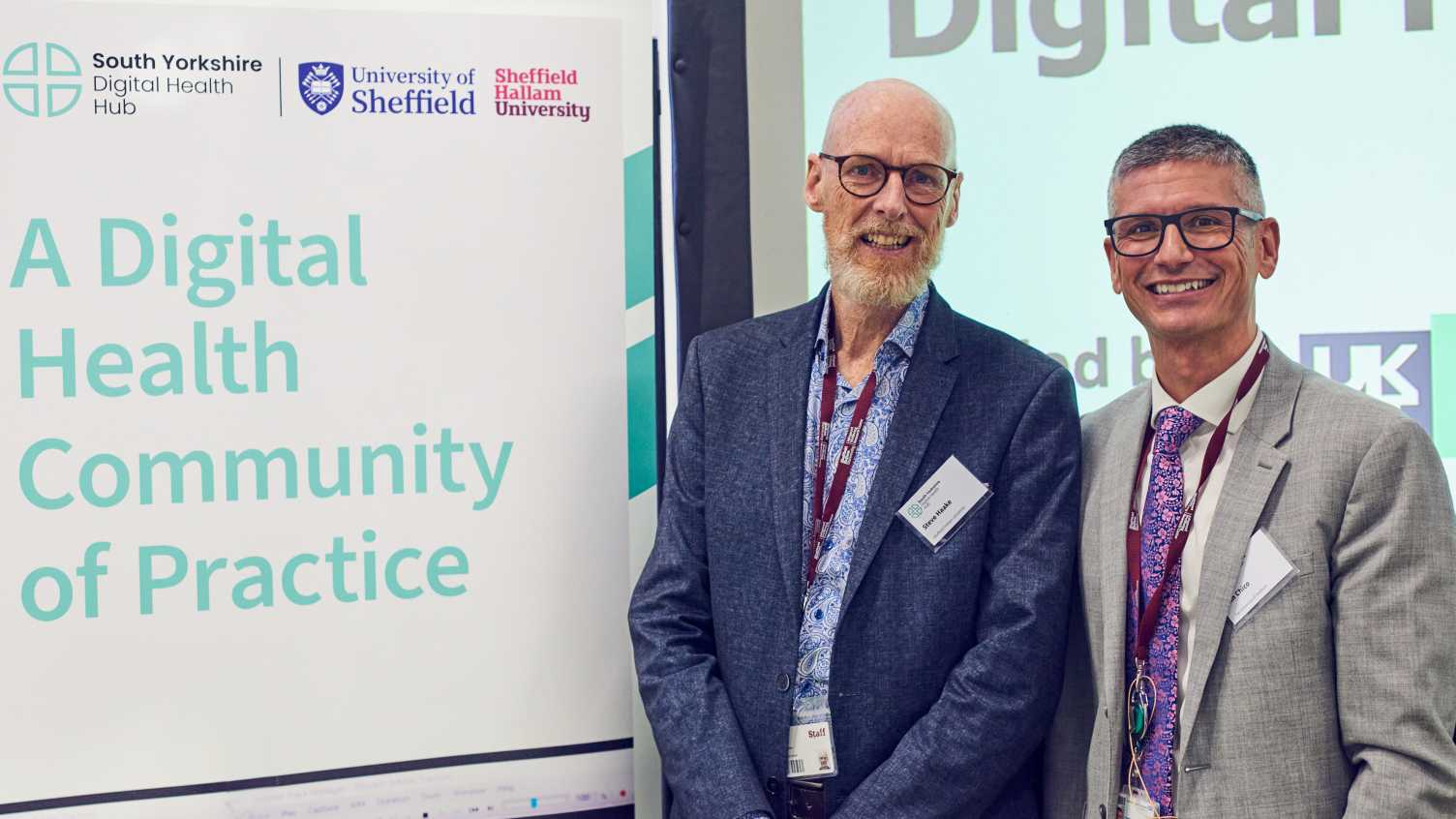
AI Breakthroughs Propel NHS Future Vision
With a renowned reputation for impactful and innovative translational research, the University’s work aligns with the government’s action plan, which emphasises a shift towards digital-first healthcare, prevention and personalised patient care.
South Yorkshire faces some tough health challenges, with people often living shorter lives and experiencing poorer health than the national average.
The University is already committed to bringing together patients, doctors, health professionals, industry, academics and the public through collaborative initiatives to address these pressing issues. Its researchers work with stakeholders in the health and social care sector to maximise the potential of big data and AI, tackle health inequalities and drive economic growth.
AI improves outcomes for depression treatments
The University of Sheffield is already demonstrating the potential of AI to improve healthcare with an application to support people with depression and anxiety.
Without it, the default for many patients in accessing mental healthcare is ‘trial and error’ – they try several therapies in the pursuit of one that actually works, extending distress and delaying recovery.
Funded in part by Mindlife UK and supported by the National Institute for Health and Care Research Clinical Research Network, Sheffield researchers have developed a pioneering artificial intelligence tool that helps NHS professionals personalise treatment plans for patients with depression, improving recovery outcomes and speeding up care. Tested through a three-year clinical trial involving over 900 patients across Lancashire, Rotherham and Doncaster, the tool demonstrated significantly improved outcomes for stratified care over standard stepped care, albeit at an additional cost. This is an early example of the potential for AI to deliver clinical benefits in mental health services.
AI tool speeds up diagnosis for heart patients
A pioneering artificial intelligence (AI) tool which provides a quick and comprehensive analysis of the heart’s function is improving the future heart disease care by aiding earlier diagnosis and giving more detailed information about the heart’s function.
Developed by researchers at the University of Sheffield and Sheffield Teaching Hospitals NHS Foundation Trust, the tool – called ‘The AI segmentation of cardiac MRI to automate the measurement of cardiac function and volume technology’ – automatically detects chambers of the heart on images taken from MRI heart scans,performing tasks that would normally involve lengthy manual analysis within seconds.
MRI heart scans are requested by doctors to check on a patient’s heart health, giving detailed information on how the heart is pumping. This allows for a diagnosis to be given, or treatments started or adjusted.
The current process for reading these results is time-consuming and resource-intensive, with doctors and cardiac imaging specialists first having to draw contours on the scan images of the heart and then undertake complex volumetric and mathematical calculations to work out blood flow in and out of the heart.
Researchers estimate that the AI tool will save doctors and expert imaging specialists up to 30 minutes per scan, freeing up vital NHS resources whilst also aiding earlier diagnosis.
Data Connect
Data Connect helps researchers access health data from across South Yorkshire to better understand the health conditions that affect people living in the region, and gives policymakers the evidence they need to make decisions that will improve people’s health.
Using regional health data in this way allows researchers and local authorities to identify, understand and target diseases and conditions more quickly; design treatments and services that are personalised to the people who live here; and spend money on things that have the greatest benefit to the most people. Partners include the NHS South Yorkshire Integrated Care Board, Yorkshire and Humber Academic Health Science Network and Health Data Research UK.
South Yorkshire Digital Health Hub
The University leads the South Yorkshire Digital Health Hub – a £4 million initiative in collaboration with Sheffield Hallam University, and alongside the South Yorkshire Mayoral Combined Authority (SYMCA) and Sheffield Teaching Hospitals NHS Foundation Trust – which is exploring how we can use data analytics, AI and mobile health monitoring to diagnose diseases more quickly and make treatments more targeted and effective. Sheffield was one of five hubs across the UK to be awarded part of a £16.5 million investment in healthcare technology from the Engineering and Physical Sciences Research Council (EPSRC).
Many of us now use different technologies in our daily lives and it is increasingly common for people to use a smartphone or wear a smartwatch, sleep ring or other health tracking sensors or implants. These devices can provide invaluable information about our health, like the number of steps we take, the hours we sleep, our heart rate and blood oxygen.
This data is currently underutilised in healthcare and could hold significant potential in helping us diagnose diseases earlier and quicker. The University is exploring how it can integrate this information with routine healthcare data, like treatments, medication or hospital procedures, to improve care for patients. Taking such a personalised approach could also reduce costs for the NHS.
In February 2024, Google announced it would be partnering with the South Yorkshire Digital Health Hub to invest in health tech research and training. Google will fund research, digital skills training scholarships and apprenticeships for local students and businesses.
The first research project – the PUMAS study – aims to understand whether Pixel smartphone sensors that detect light, radar, and electrical signals from the heart could aid the detection of common conditions such as hypertension, high cholesterol and chronic kidney disease. Early detection of these conditions could help people to make informed lifestyle choices which could slow down and even in some cases prevent their progression.
Centre for Care
The University leads the Economic and Social Research Council Centre for Care, which is generating new insights into the use of digital health technologies and the outcomes of this use for all involved in the care sector.
Bringing health and social care data together in a way that it can be used effectively by researchers, including through the application of AI, provides innovative ways to address health inequalities, develop diagnostic tools and preventative approaches to disease and improve people’s lives and livelihoods, as well as reducing the burden on the NHS.
https://www.sheffield.ac.uk/news/pioneering-data-and-ai-advancements-helping-deliver-nhss-future-vision


